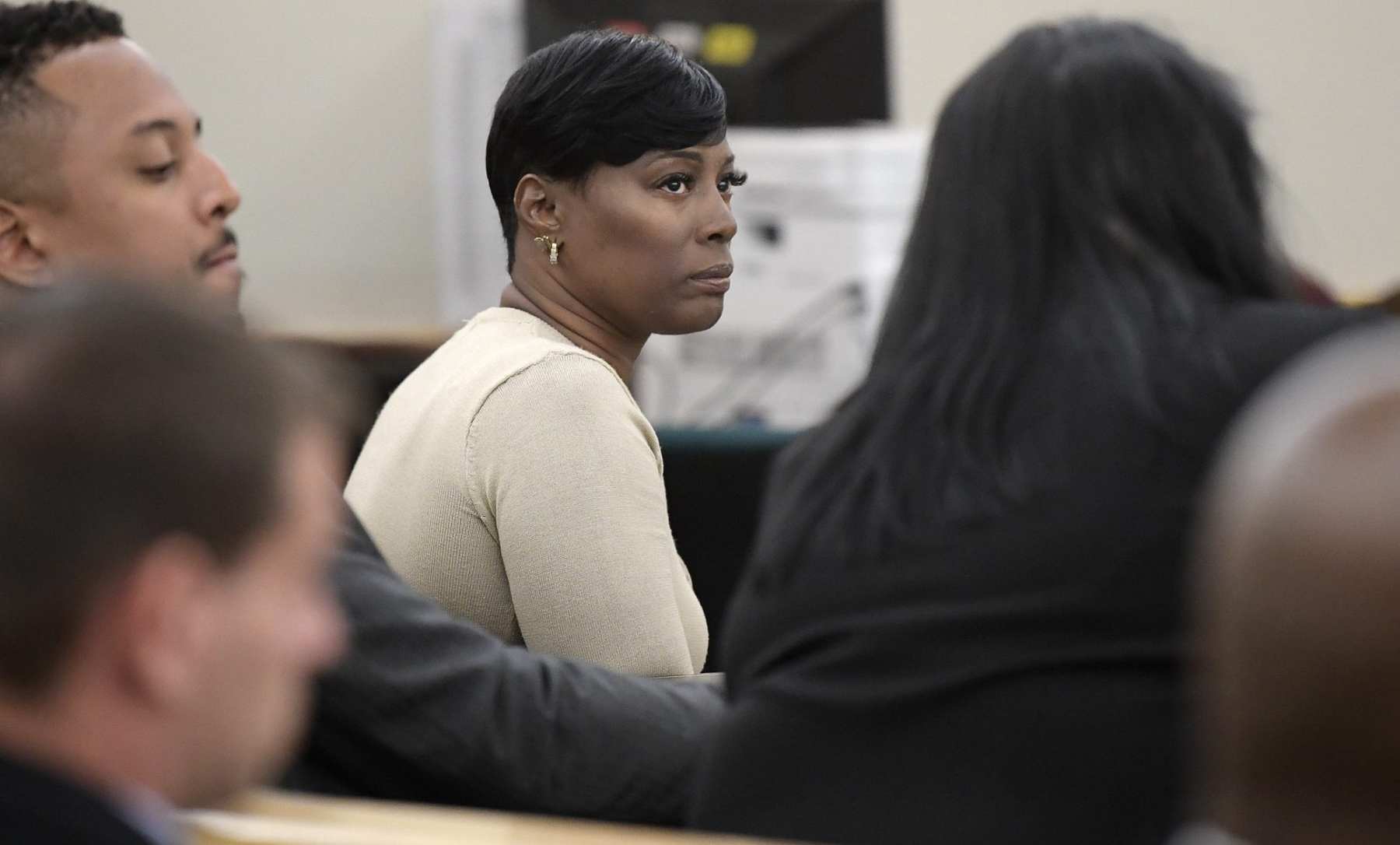Attorneys for Crystal Mason, a Black woman in her 40s who was sentenced to five years in prison on charges of illegally voting, asked the Texas Court of Criminal Appeals to overturn her conviction on Monday.
Mason’s case stems from an incident in 2016 when she cast a provisional ballot while on federal supervised release — a situation similar to probation, for a previous conviction. She did not know that this post-release status made her ineligible to vote, and has said she would not have done so if she knew it meant risking her freedom. The ballot was ultimately thrown out and did not count toward the election.
Mason’s attorneys from The American Civil Liberties Union and the Texas Civil Rights Project are now fighting the five-year prison sentence in the Texas Court of Criminal Appeals. A lower appeals court rejected Mason’s case in March.
“I thought I was performing my civic duty and followed the election process by filling out a provisional ballot,” Mason said in a statement. “By trying to criminalize my actions, Texas has shown me the power of my voice. I will use my voice to educate and empower others who are fighting for their right to vote.”
This case moves forward amid President Donald Trump’s mostly-failed legal attempts to challenge the 2020 presidential election and his continued false claims of mass voter fraud, particularly in communities of color like Detroit. Attorney General William Barr told the Associated Press Tuesday the Justice Department has not uncovered evidence of widespread voter fraud that would change the outcome of the election.
Mason’s supporters find that her harsh treatment in the courts stem from the intersection of racism and sexism, as other White people prosecuted for election law violations have received less severe sentences.
Women represent the fastest-growing prison population, increasing at twice the rate of men in the past several decades, with Black and Latina women more frequently incarcerated than White ones. Mason, a mother of three and caretaker of her grandson, calls herself the head of her family. Formerly incarcerated Black women not only face barriers to labor, but have challenges accessing the franchise, as the women at the center of the nation’s only 19th Amendment felony disenfranchisement lawsuit demonstrated in Florida this year.
In 2016, when Mason discovered her name was not on the voting roll, she filled out a provisional ballot, as poll workers assured her that if she was at the right polling place it would count, otherwise it wouldn’t. A few months later, Mason was arrested.
During her single-day trial in March 2019, Mason said she had not read the left side of the provisional ballot that makes signees swear they completed any criminal punishments such as probation and parole. Her supervision officer told the court that he didn’t tell Mason that she couldn’t vote while on supervised release.
The case resulted in Mason being sentenced to five years in prison for illegal voting. This conviction violated her terms of the federal supervised release, sending her back to federal prison for 10 months, time she has since served.
Court documents say Mason had voted by provisional ballot in 2004, the first general election to offer this after the establishment of the Help America Vote Act passed in the wake of the 2000 election controversy. But after she was convicted for tax fraud in 2012, Mason was removed from the voting roll.
Mason’s legal team argued that a provisional ballot’s eligibility should be determined by election officials, not voters. A lower court found that provisional ballots, whether they’re counted or not, should be treated as voting, meaning someone like Mason could be punished to the fullest extent of the law even though her vote didn’t count.
“Thus, contrary to Mason’s assertion, the fact that she did not know she was legally ineligible to vote was irrelevant to her prosecution,” reads a March court opinion from the Court of Appeals for the 2nd District of Texas. Mason only had to be aware of the “condition that made her ineligible,” the court said, which in this case was being under federal supervised release.
Mason attorneys criticized the Texas Court of Appeals, the state’s highest appeals court, which in 2013 overturned former House Majority Leader Tom DeLay’s conviction for money laundering in violation of election law. While the cases are quite different, Mason’s attorneys argue that DeLay’s acquittal set a precedent when the court held that DeLay did not knowingly violate election law when he allegedly steered contributions from a Republican political action committee to Texas candidates. Funneling corporate money into political campaigns is illegal.
In a similar vein, Mason’s attorneys argue that her charges should be thrown out, like DeLay’s, because she did not know that casting a provisional ballot being on supervised release violated election law and rendered her ineligible to vote.
“In reversing the criminal conviction of former Republican U.S. Rep. Tom DeLay, the Court held that an individual must actually realize they are acting in violation of the Election Code in order to be lawfully convicted for such a violation,” Andre Segura, legal director for the ACLU of Texas, said in a statement. “The same result must apply to Crystal … Any other outcome would be a miscarriage of justice.”





